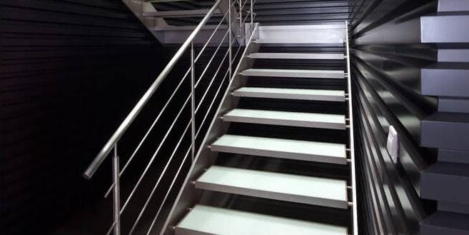May 10, 2018
New framework aims to ensure facilities managers have the expertise to keep up with demand for services
 The Royal Institute of Chartered Surveyors (RICS) and the International Facility Management Association (IFMA) have created a new framework which sets out to provide strategic best practice advice and outline how facilities managers can make the most of their expertise to keep-up with the growing demand for FM services. The Strategic Facility Management (FM) Framework authored by Dave Wilson, FRICS, IFMA Fellow for the IFMA-RICS collaboration – sets out a more ‘holistic approach’ to planning the provision of FM, with best practice advice on how to achieve maximum value from a workplace, including gaining environmental benefits, improving productivity, whilst also protecting employees and consumers. The framework also sets out some of the key aspects of how and where facility managers can play a bigger, more valuable role in the corporate real estate decision-making process, including property acquisition and disposal.
The Royal Institute of Chartered Surveyors (RICS) and the International Facility Management Association (IFMA) have created a new framework which sets out to provide strategic best practice advice and outline how facilities managers can make the most of their expertise to keep-up with the growing demand for FM services. The Strategic Facility Management (FM) Framework authored by Dave Wilson, FRICS, IFMA Fellow for the IFMA-RICS collaboration – sets out a more ‘holistic approach’ to planning the provision of FM, with best practice advice on how to achieve maximum value from a workplace, including gaining environmental benefits, improving productivity, whilst also protecting employees and consumers. The framework also sets out some of the key aspects of how and where facility managers can play a bigger, more valuable role in the corporate real estate decision-making process, including property acquisition and disposal.


























 A third of UK workers (31 percent) say their employer has little or no interest in their mental health, despite the fact that a fifth (20 percent) are stressed out on a daily basis, and for almost a third (33 percent) the issue is so bad that they’re considering looking for a new role. This is according to a new study of nearly 1,300 workers by ADP which found that workplace stress peaks amongst younger employees, with 22 percent of workers under 35 saying they experience stress every day, and 42 percent saying that it is so bad, they’re considering jumping ship. This contrasts with only 19 percent and 26 percent respectively of those over 35 who feel this way, suggesting employees become better at managing stress as they get older.
A third of UK workers (31 percent) say their employer has little or no interest in their mental health, despite the fact that a fifth (20 percent) are stressed out on a daily basis, and for almost a third (33 percent) the issue is so bad that they’re considering looking for a new role. This is according to a new study of nearly 1,300 workers by ADP which found that workplace stress peaks amongst younger employees, with 22 percent of workers under 35 saying they experience stress every day, and 42 percent saying that it is so bad, they’re considering jumping ship. This contrasts with only 19 percent and 26 percent respectively of those over 35 who feel this way, suggesting employees become better at managing stress as they get older. 








April 25, 2018
A few demonstrable truths about agile working that aren’t talked about enough
by Sarah Booth • Comment, Workplace design
(more…)